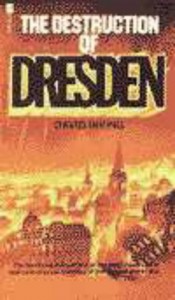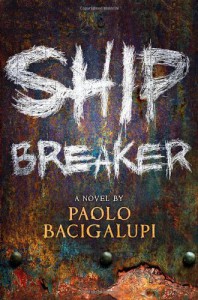
 Following the resounding success of my Locus Quest, I faced a dilemma: which reading list to follow it up with? Variety is the spice of life, so I’ve decided to diversify and pursue six different lists simultaneously. This book falls into my GIFTS AND GUILTY list.
Following the resounding success of my Locus Quest, I faced a dilemma: which reading list to follow it up with? Variety is the spice of life, so I’ve decided to diversify and pursue six different lists simultaneously. This book falls into my GIFTS AND GUILTY list.
Regardless of how many books are already queued patiently on my reading list, unexpected gifts and guilt-trips will always see unplanned additions muscling their way in at the front.If I didn’t stick to certain rules, I would buy books far faster than I could ever hope to read them – resulting in the sad, sad, fate of far too many good books languishing unread upon my shelves. So I have rules that govern when I may buy a new book.
I allow myself eighteen unread books upon my shelves at any one time. Why eighteen? Because when I look at my ‘to-be-read’ shelf, here on goodreads, using the cover view, it shows them in rows of six. So, three rows of books is a nice, neat pool of eighteen books to select from. When I finish a book, I pick my next book from the pool of eighteen, and then I allow myself to buy another book (normally ordered from Amazon second hand, that very second).
Again, I have my rules. The second tier shelf is ‘to-buy’ – these are the books I’d have already ordered by now if I wasn’t sticking to the rules. Again, I keep it stocked at eighteen books for the same reason, it’s a good sized pool to select from and looks nice and neat on my screen (I’m aware I’m a bit OCD about this, no need to comment!)
We have two more shelves to the system – the ‘wanted’ shelf, which I keep a little larger (thirty books) from which I promote one up to the ‘to-buy’ shelf whenever I have just ordered a book. Finally there’s my ‘long-list’ shelf, which covers everything else I’d like to get hold of, and from which I promote a single book up to the ‘wanted’ shelf whenever an opening arises.
So you see, I have this nice co-ordinated system of tiered book-buying, and whenever I finish a book it results in cascading promotions, which I love, because although I only actually buy one new book there’s another two which take a step closer to getting ordered.
Which is why gifts and borrowed books are such a pest! Don’t get me wrong, I love books and I love being given books – but they barge straight into the top shelf of the system, often making it overflow past the magic eighteen, and I’m forced to delay buying the books I actually wanted to get until I’ve read enough books to open that space back up. Since I did a tidy-up of outstanding unread books after moving house, my ‘to-be-read’ shelf has been dominated by those books I’ve had borrowed/bought/gifted. This is not ideal, so I’ve been pushing hard to get some of those cleared off, so I can fill those slots with the sci-fi/fantasy novels on my reading list.
Gillespie and I was a present from my Mum. I’m not entirely sure why she got it for me, she’s never read anything by Jane Harris before and she knows exactly what kind of books I love – it was my Mum who got me started on Peter Hamilton, Dan Simmons and David Mitchell – so I’m pretty sure it was on a whim because the cover-art looked great. The most exciting think I can say about
Gillespie and I is that now I’ve finished it, I’ve ordered
The Girl Who Circumnavigated Fairyland in a Ship of Her Own Making by
Catherynne Valente! That’s not to say it was a bad book – it is actually a very clever and well written book – it’s just not a book I would have chosen to read and it didn’t pack enough wow/punch to make a convert of me.
So let’s review the actual book then, shall we?
* SPOILERS AHEAD – DIVERS ALARUMS!* - I say this nice and clear because this review is going to be spoilerific, so if you’re planning to read this book soon, you really should NOT keep reading...
Gillespie and I is a story about an English spinster, Harriet Baxter in the 1880s. She moves to Glasgow after her Aunt dies and soon befriends the Gillespie family: promising working-class painter, Ned, his wife Annie, his overbearing mother, Elspeth, and his two young daughters Sybil and Rose. To begin with, we follow the trials and tribulations of the Ned’s domestic and professional life; Sybil is a naughty little girl, and it’s hard to break through as an established painter. There are overtones of foreboding regarding how sinister Sybil can be, and that something horrific happened to Ned’s youngest, Rose. Around the half-way point, Rose goes missing. Months later the little girl’s body is found in a shallow grave. Very quickly afterwards, Harriet is arrested and charged with kidnapping and murder. The latter part of the book follows the trial, and the crown’s case that Harriet was obsessed with worming her way into the Gillespie’s home and driving Ned’s family away from him, one by one. She’s accused of hiring some goons to kidnap the girl – they were meant to return her unharmed, but there was an accident during the getaway and she sustained a blow to the head and later died.
The story is told as Harriet’s memoire – she was cleared of all charges and, now and old lady, is telling her side of events. There’s a second thread ‘modern day’ (around 1920, I think) regarding Harriet’s life now, and in particular her new live-in maid, Sarah. Again, there’s tints and foreboding that Sarah is actually the mad daughter of the Gillespie’s, Sybil, come for her revenge.
It’s a great example of the unreliable narrator – this is Harriet’s version of events, and there are hints scattered throughout that her interpretation is more biased – despite all attempts to portray herself as a reasonable and objective witness. Before long, there’s little doubt that Harriet’s version of events is untrue, possibly delusional, and it’s down to the audience to read between the lines and piece together the true chain of events.
The image of Harriet that emerges is a complex, psychologically (perhaps pathologically?) damaged woman, who is very bright, very articulate, and has completely divorced her ‘good’ identity (the angle of mercy) from the scheming, devious, manipulative bitch she truly is. She believes every word of her lies and papers over the cracks with meticulous detail.
As mentioned in my introduction, this isn’t my normal kind of book. This is Mann Booker fare. This is Literature. I’m a genre geek. I can’t think of any books I’ve read with protagonists like this – but I have seen films that are comparable:
Notes on a Scandal,
Match Point and
The Talented Mr Ripley are three that spring to mind. They’re creepy. They’re often described as psychological thrillers. It’s not a subgenre I’m fond of. It’s a kind of storytelling in which I can appreciate the skill and subtlety of the storytelling, the careful tightrope walk of doubt, empathy and disgust the protagonist elicits, but I’ve never really enjoyed it. If anything,
Gillespie and I is a harder sell; all three of those films are motivated by (distorted forms of) love. You never get the sense that Harriet is in love with Ned, but she’s obsessed with his attention, perhaps as a surrogate father figure?
The book is superbly written, there’s no doubt about that. Wonderfully sketched characters, dialogue and detail – and the multilayered delusion/truth in the telling is never conceited or convoluted. I can point to no flaws; I simply did not enjoy it.
The final, poignant moment where the mad old bat looks up at the picture of The Studio above her fire, and it's presence there completely obliterates any shreds of doubt - that was very nicely done. That almost earned it a fourth star, but that was an on-the-spot reaction which quickly faded.
Gillespie and I gets a respectful three-stars from me.
After this I read: My War Gone By, I Miss It So
















 1
1


